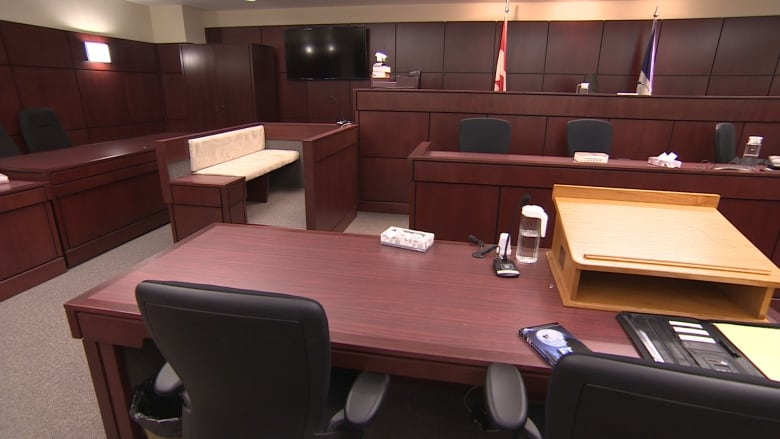OPINION | Without representation, there is no justice, writes domestic violence victim
Monique Robert writes about her experience navigating the legal system, and what is needed

This opinion piece is part of Stopping Domestic Violence, a CBC News series looking at the crisis of intimate partner violence in Canada and what can be done to end it.
You might think there is a whopping amount of help for domestic violence victims, considering how often we hear from the public, police, the Crown, and Victim Services.
Well, surprise: There isn't. I would know.
I was assaulted by my ex-partner. Immediately after his assaults, he chose to live 182 metres away from me in open water — I live on a floating home — so, I reported him.
I told myself at the time: "I'll be damned if he succeeds in not only assaulting me, but forcing me away from my home."

I lived on adrenaline for over a year. I was terrified, yet looking for justice.
But there were a lot of hurdles on that track.
As I navigated through the legal system, I frequently found the left hand didn't know what the right hand was doing. I did the leg work myself, putting much of my life aside.
It was hard. It was a job, and a huge learning process.
Victims re-victimized
While reporting assaults to the police, victims are under extreme stress and may forget details, like dates and the order of events — and, importantly, they're on their own. An assaulter usually has a lawyer representing them, and has full access to the case to hash out a strategy.
The Crown is not our lawyer, but an agent of the government. In criminal proceedings, we are deemed merely a witness to our own assaults. Victim Services is not a legal entity. It is available to give safety advice, resources, and emotional support.

There are many instances in which I could have greatly benefited from a legal entity acting on my behalf. After my assaulter's bail hearing, he was left alone with a Justice of the Peace to explain "why he is not a threat to his victim," influencing the details of his own restraining order, with nobody to speak for me.
These conditions are set and cannot change unless a judge agrees at trial time, which can take up to a year. Without that representation, it is the victim that has to press the Crown to increase or update the restraining order, putting us in yet another very vulnerable position.
This lack of representation extends to the trial itself. In my case, the Crown lawyer tried to convince me that he could not bring my ex's previous sexual assault conviction up to the the judge, as he had obtained a pardon.
I had to dig and find out for myself that this was not the case: The judge can indeed be informed of this pardon and the reason for it.
When I contacted Pardons Canada, an agent told me they could simply send it along, on the request of the Crown.
"A pardon is like a driver's license: it can be revoked," they said.
The Crown had their man, and they made me feel expendable- Monique Robert, domestic violence victim
Had the Crown been informed by a victim's legal representative, he might have brought this information to the judge in time for my ex's conviction.
Without the Crown having done due diligence, my ex was convicted, yet he was dangerously free, living 200 yards away from me for six weeks while he awaited his sentence.
I should've been elated that he had been convicted. Instead, I was terrified. The Crown had their man, and they made me feel expendable.
Represent those who are most vulnerable
Reinventing the wheel has to stop. We need a legal representative to do the leg work for victims, and to keep them from being re-victimized.
Victims should never have to witness police officers rolling their eyes and arguing with us while we report an 'unproven' breach.
We should never have to do our own legal research to ensure that our assaulters don't live mere metres away from us, before trial and after they're convicted.
My assaulter did go to jail. But his sentence was only five months, and he got out in three.
So often, we hear: "I can't refer to it as the justice system; It's a legal system." I wholeheartedly agree.
There is no justice in leaving victims to fend for themselves.
This column is part of CBC's Opinion section. For more information about this section, please read this editor's blog and our FAQ.

